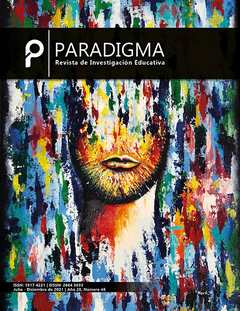Reflective Learning and Critical Reading: Necessary Processes for the Formation of Competent Citizens
DOI:
https://doi.org/10.5377/paradigma.v28i46.12840Keywords:
reflective learning, critical reading, citizenship training, competencies, participationAbstract
This research raises the link between reflective learning and critical reading is proposed as closely related processes that not only enable cognitive development but also promote citizen awareness towards the use of knowledge as a necessary resource for the construction of well-being alternatives that dimension collective life, guarantee social inclusion, the transformation of individual goals into collective ones, through the use of symmetrical dialogue and the willingness to exercise an active and competent citizenship, in which mutual commitment emerges as a result of critical interaction with a complex and changing reality, that demands the leading integration to consolidate functional relationships and the establishment of solid personal ties from which to make decisions, as well as to choose suitable alternatives that reflect democratic ideals. It is concluded that it is necessary to promote training experiences that privilege reflective learning and critical reading, as processes linked to the full exercise of citizenship.
Downloads
609
Downloads
Published
How to Cite
Issue
Section
License
Copyright (c) 2021 Universidad Pedagógica Nacional Francisco Morazán

This work is licensed under a Creative Commons Attribution-NonCommercial-NoDerivatives 4.0 International License.
Transfer of Copyright
- The author, when sending the work, states that it is his will to give the Universidad Pedagógica Nacional Francisco Morazán the patrimonial rights that correspond to him as the author of his work.
- The rights here assigned include all economic rights (Reproduction, transformation, public communication and distribution) and are given without limitation in terms of territory; This Assignment is given for the entire duration term established in the current legislation in Honduras.
- The cession of the aforementioned rights does not imply the cession of moral rights over it, because in accordance with the provisions of the Copyright and Related Rights Law, Chapter II, of the Moral Rights, Article 34, Article 25 , these rights are inalienable, imprescriptible, indefeasible and inalienable.
- The research work or document must be original and have been done without violating or usurping rights of third parties, therefore, the work is exclusively authored and owns the same.
- In the case of any claim or action by a third party, as to copyright on the work in question, the author must assume full responsibility for the rights assigned.
- Upon completion of the Rights Assignment Form, the author states that the work has not been published in another way, that the rights on the work have not been assigned and that no encumbrance or limitation on their use or use is imposed on them.





